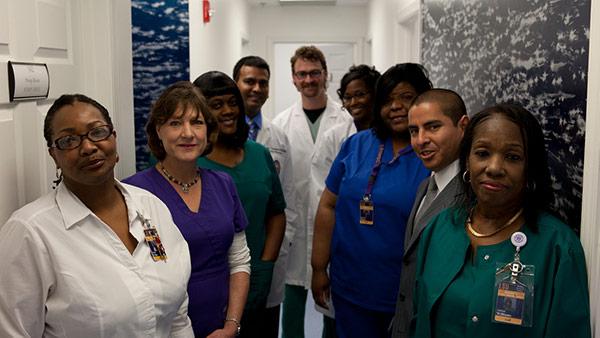
HIV clinical training resources for HRSA's AIDS Education and Training Centers Program.
Providing quality care to people with HIV is the mission of the Ryan White HIV/AIDS Program (RWHAP). Most Ryan White clinics use a multidisciplinary team approach where clinicians (e.g., physicians, nurses, physicians assistants) work with other staff and consumers to ensure that patients receive care and support. The resources on this website, and the support provided by HRSA training and technical assistance, can help clinicians keep abreast of complex and evolving standards in order to provide high quality care to their patients.
Find Technical Assistance and Training for current projects that deliver support to RWHAP agencies.
Search or browse by topic:
Stay Informed - Sign up for HRSA-supported RWHAP listservs.
HIV clinical training resources for HRSA's AIDS Education and Training Centers Program.
Federal agency that administers the Ryan White HIV/AIDS Program (RWHAP), which helps low-income people with HIV receive care.
Healthcare providers can receive no-cost expert clinical consultation in HIV prevention & care, HCV treatment, and substance use management.
U.S. HIV-related treatment guidelines, drug database, and glossary.
Review of the basics of trauma and modules on trauma-informed approaches in the delivery of HIV care.
Federal guidelines for treatment, prevention and care of HIV disease, opportunistic infections, and common co-infections.
Performance measures to help Ryan White HIV/AIDS Program agencies monitor and improve the quality of care they deliver.
Strategies for assessing and reducing risk of oral health disease, building oral health care provider networks and referral processes, and supporting clients through patient navigation.
Clinical care guides for various populations (based upon their racial, ethnic, and gender characteristics) and specific conditions.
Online clinician training platform with evidence-based core competency training on HIV prevention, screening, diagnosis, care, and key populations.